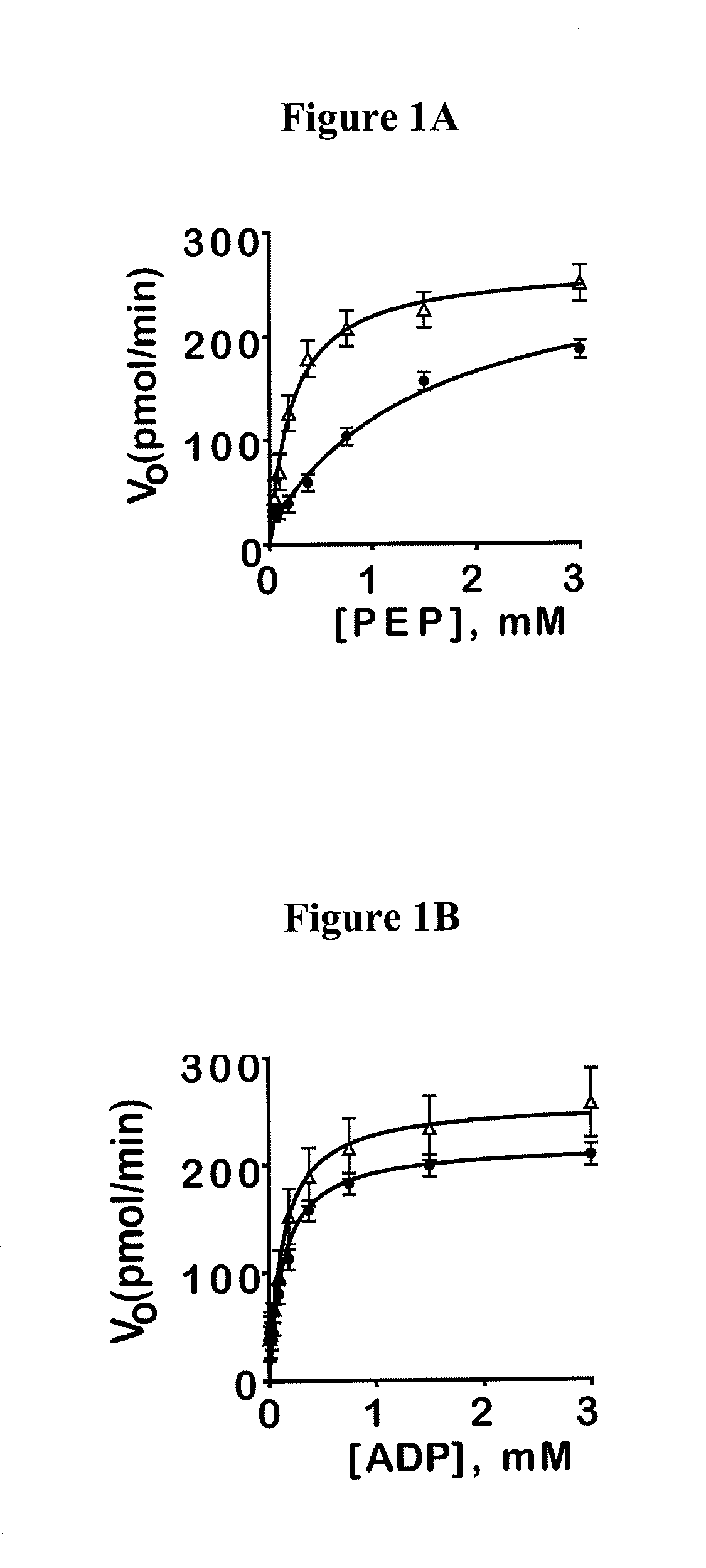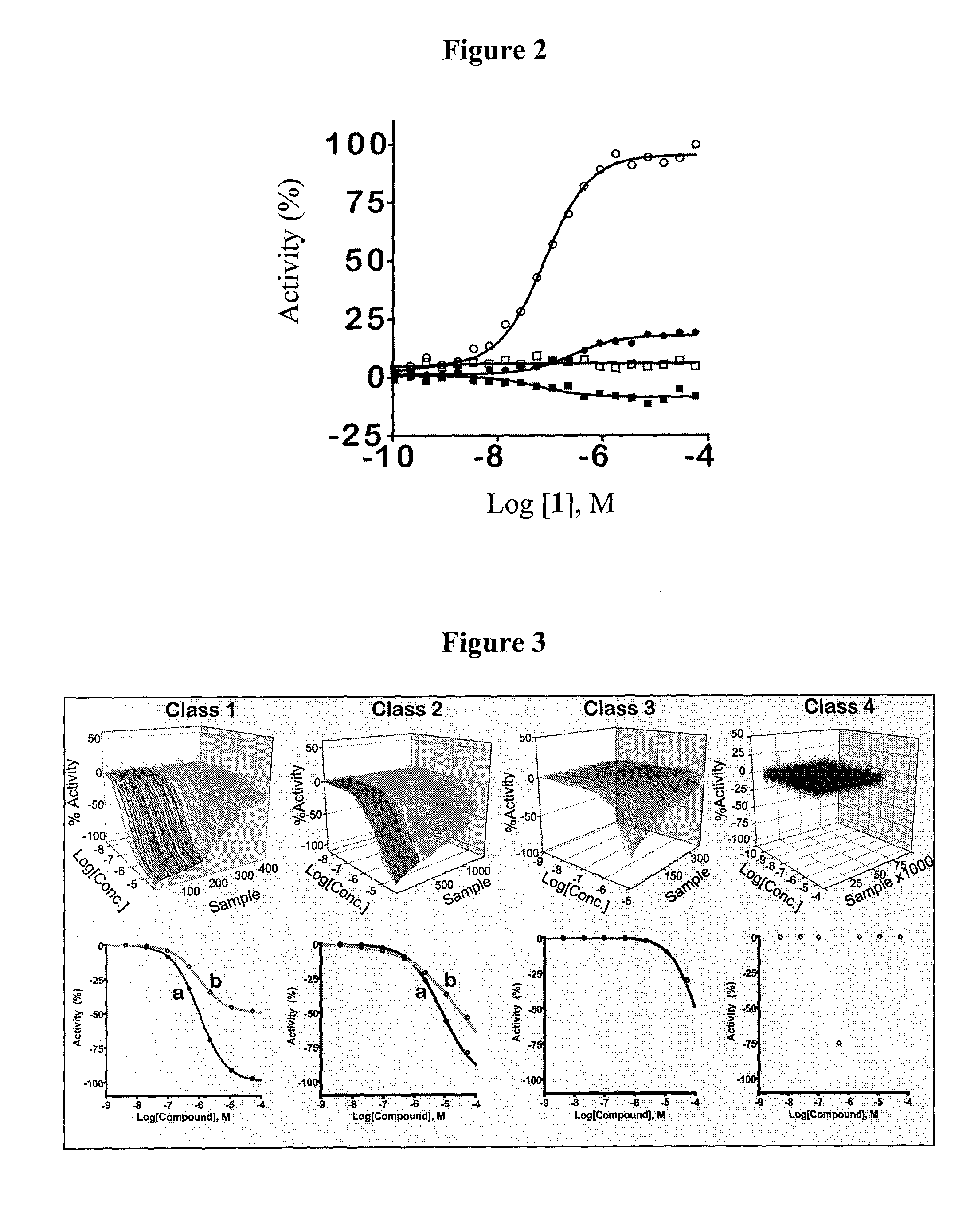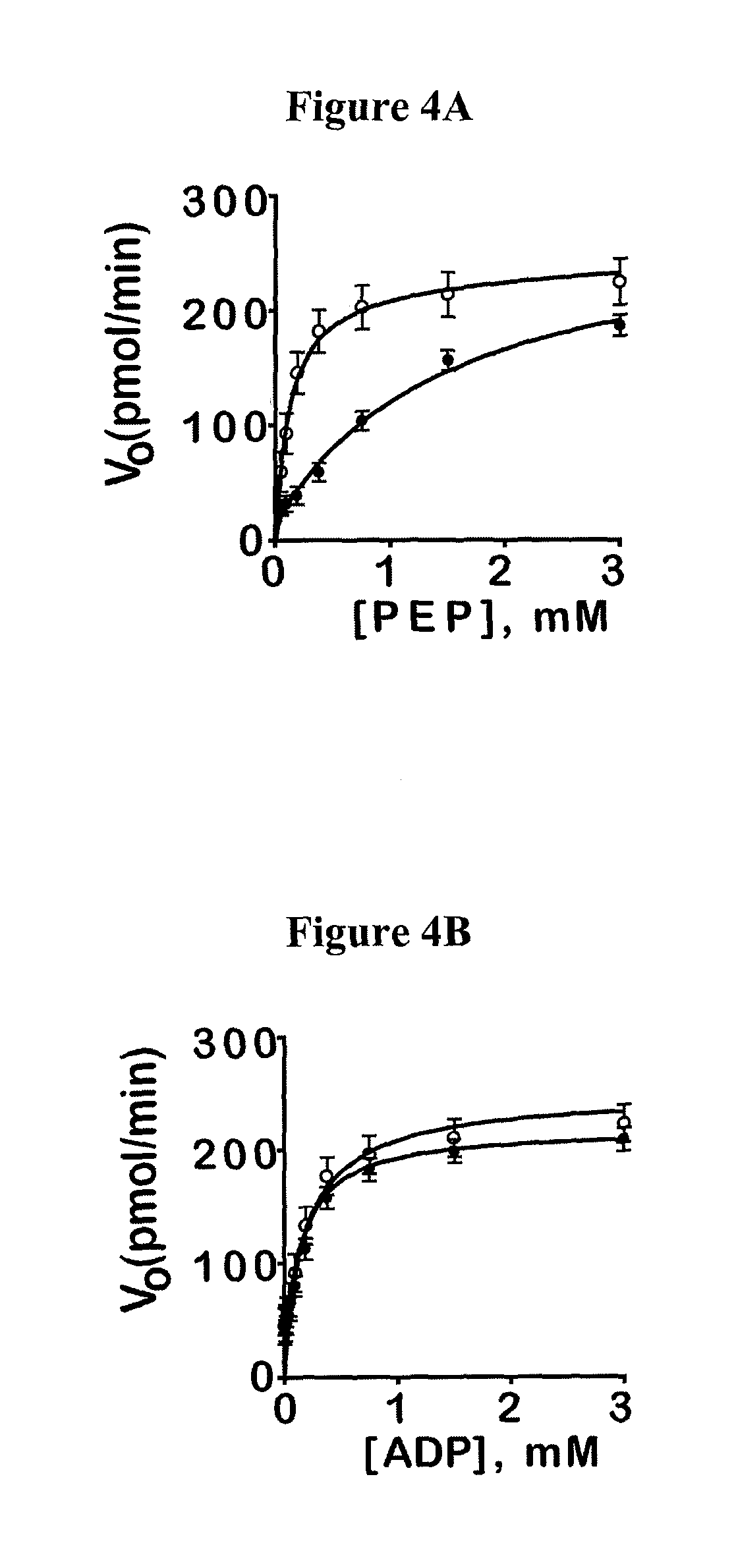Activators of human pyruvate kinase
a technology of pyruvate kinase and activators, which is applied in the direction of antiparasitic agents, drug compositions, extracellular fluid disorder, etc., can solve the problems of premature destruction of red blood cells, cell dehydration, contraction and crenation, etc., and achieve the effect of reducing the effect of compound 66
- Summary
- Abstract
- Description
- Claims
- Application Information
AI Technical Summary
Benefits of technology
Problems solved by technology
Method used
Image
Examples
example 1
[0255]This example illustrates general methods in preparing compounds of the invention in accordance with an embodiment.
[0256]All air or moisture sensitive reactions were performed under positive pressure of nitrogen with oven-dried glassware. Anhydrous solvents such as tetrahydrofuran (THF), toluene, dichloromethane, N,N-dimethylforamide (DMF), acetonitrile, methanol and triethylamine were obtained by purchasing from Sigma-Aldrich. Preparative purification was performed on a Waters semi-preparative HPLC. The column used was a Phenomenex Luna C18 (5 micron, 30×75 mm) at a flow rate of 45 mL / min. The mobile phase consisted of acetonitrile and water (each containing 0.1% trifluoroacetic acid). A gradient of 10% to 50% acetonitrile over 8 minutes was used during the purification. Fraction collection was triggered by UV detection (220 nM). Analytical analysis was performed on an Agilent LC / MS (Agilent Technologies, Santa Clara, Calif.). Method 1: A 7 minute gradient of 4% to 100% Aceton...
example 2
[0369]This example illustrates additional embodiments of the compounds of Formula Ia:
[0370]Compound 122: 1H NMR (400 MHz, DMSO-d6) 8 ppm 10.35 (s, 1H), 7.76 (d, J=8.80 Hz, 3H), 7.60 (d, J=8.80 Hz, 2H), 7.18-7.30 (m, 2H), 3.14-3.20 (m, 4H), 2.91-3.01 (m, 4H), 2.08 (s, 3H).
[0371]Compound 123: 1H NMR (400 MHz, DMSO-d6) 8 ppm 7.75 (s, 1H), 7.19-7.37 (m, 4H), 6.60 (d, J=8.80 Hz, 2H), 3.16 (d, J=4.50 Hz, 4H), 2.79-2.95 (m, 4H); LC / MS: Method 1, retention time, 5.128 min; Method 2, retention time 3.748 min; HRMS: m / z (M+H+)=417.0634 (Calculated for C16H17N3O4S2=417.0629).
[0372]Compound 124: 1H NMR (400 MHz, DMSO-d6) 8 ppm 7.18 (m, 3H), 6.98-7.09 (m, 2H), 6.81-6.97 (m, 2H), 4.18-4.36 (m, 4H), 3.08-3.21 (m, 8H), 1.66-1.83 (m, 2H); LC / MS: Method 1, retention time, 5.017 min; Method 2, retention time 3.704 min; HRMS: m / z (M+H+)=453.1035 (Calculated for C19H23N3O6S2=453.1028).
[0373]Compound 125: 1H NMR (400 MHz, DMSO-d6) 8 ppm 7.30-7.40 (m, 2H), 7.13-7.23 (m, 2H), 6.95-7.09 (m, 1H), 6.52-6.65 (...
example 3
[0382]This example illustrates some of the properties of the compounds of the invention.
[0383]Reagents: Kinase-Glo was obtained from Promega (Madison, Wis.). ATP, PEP, LDH and NADH were from Sigma. Reagents and solvents were purchased from Sigma, Alfa Aesar, Acros, Enamine, Oakwood Products, Matrix Scientific or Chem-Impex International.
[0384]Luminescent pyruvate kinase-luciferase coupled assay. Production of a luminescent signal based on the generation of ATP by pyruvate kinase was determined by using the ATP-dependent enzyme firefly luciferase. Three μL of substrate mix (at r.t.) in assay buffer (50 mM imidazole pH 7.2, 50 mM KCl, 7 mM MgCl2, 0.01% tween 20, 0.05% BSA) was dispensed into Kalypsys white solid bottom 1,536 well microtiter plates using a bottle-valve solenoid-based dispenser (Kalypsys). The final concentrations of substrates in the assay were 0.1 mM ADP and 0.5 mM PEP. Twenty-three nL of compound were delivered with a 1,536-pin array tool and 1 μl of enzyme mix in as...
PUM
| Property | Measurement | Unit |
|---|---|---|
| body weight | aaaaa | aaaaa |
| temperature | aaaaa | aaaaa |
| flow rate | aaaaa | aaaaa |
Abstract
Description
Claims
Application Information
 Login to View More
Login to View More - R&D
- Intellectual Property
- Life Sciences
- Materials
- Tech Scout
- Unparalleled Data Quality
- Higher Quality Content
- 60% Fewer Hallucinations
Browse by: Latest US Patents, China's latest patents, Technical Efficacy Thesaurus, Application Domain, Technology Topic, Popular Technical Reports.
© 2025 PatSnap. All rights reserved.Legal|Privacy policy|Modern Slavery Act Transparency Statement|Sitemap|About US| Contact US: help@patsnap.com



